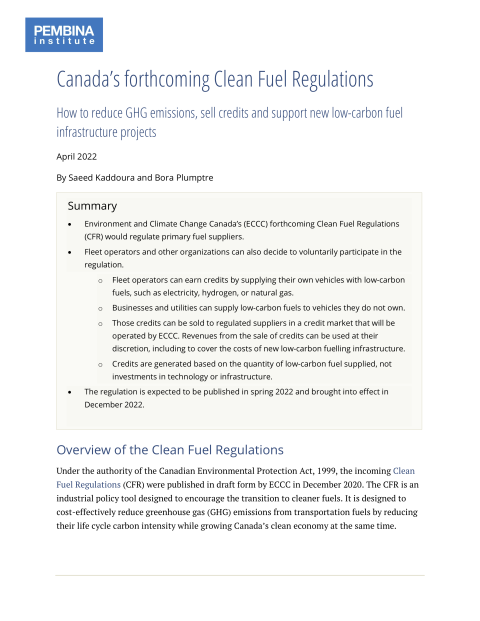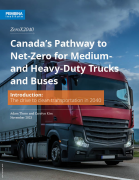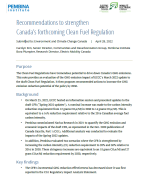This issue paper was prepared for the Urban Delivery Solutions Initiative, a national network of businesses and organizations working to reduce freight emissions in Canadian cities. To learn more or join, please visit the UDSI subsite.
The Clean Fuel Regulations, or Clean Fuel Standard, is an industrial policy tool designed to encourage the transition to cleaner fuels. It is designed to cost-effectively reduce greenhouse gas (GHG) emissions from transportation fuels by reducing their life cycle carbon intensity while growing Canada’s clean economy at the same time.
- Environment and Climate Change Canada’s (ECCC) forthcoming Clean Fuel Regulations (CFR) would regulate primary fuel suppliers.
- Fleet operators and other organizations can also decide to voluntarily participate in the regulation.
- Fleet operators can earn credits by supplying their own vehicles with low-carbon fuels, such as electricity, hydrogen, or natural gas.
- Businesses and utilities can supply low-carbon fuels to vehicles they do not own.
- Those credits can be sold to regulated suppliers in a credit market that will be operated by ECCC. Revenues from the sale of credits can be used at their discretion, including to cover the costs of new low-carbon fuelling infrastructure.
- Credits are generated based on the quantity of low-carbon fuel supplied, not investments in technology or infrastructure.
- The regulation is expected to be published in spring 2022 and brought into effect in December 2022.
The Pembina Institute and many other organizations interested in clean fuel believe that, "If the CFS is to deliver climate and cleantech investment successes, it needs a higher ambition and tighter rules. It should emulate similar successfully road-tested regulations in place around the world." In 2010 in British Columbia, the LCFS "launched the province on a journey that is transforming B.C.’s transportation sector and achieving remarkable climate and economic outcomes."
This regulation is still under development. This document is only a start for opt-in parties to understand the potential of this valuable policy tool.






